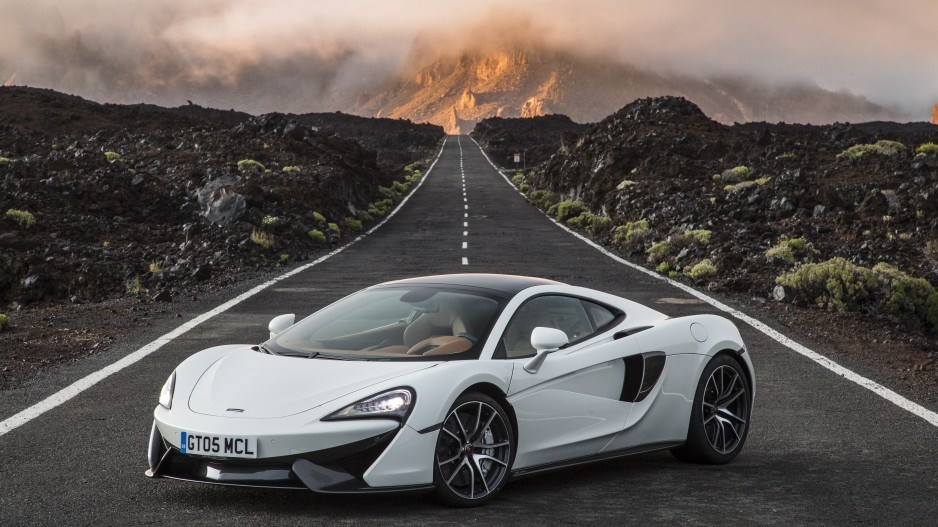Vancouver is the luxury and supercar car capital of North America, says the president and founder of the Luxury and Supercar Weekend.
The event, this year held September 10 and 11 at Vancouver’s Van Dusen Botanical Garden, showcases the luxury and supercar industry’s presence in Vancouver and celebrating the proliferation of high-end vehicles in the metropolitan area.
“Toronto, based on their population, has a lot of supercars,” said Craig Stowe. “But based on per capita it doesn’t even come close to Vancouver. In Porsche, in Audi, in Lexus, Toronto will beat Vancouver in sheer numbers, but not when it comes to McLaren or Ferrari or Rolls-Royce or Bentleys.”
Luxury cars – typically including brands such as BMW, Audi and Mercedes-Benz – are loosely defined as vehicles that cost $150,000 or more and, Stowe said, put a premium on comfort and style. Supercars, which belong in the uppermost strata of the automotive world – Ferarri, Porsche and McLaren come to mind – are even costlier and tend toward the sports-car end of the spectrum, stressing speed and horsepower, he said.
According to the Insurance Corporation of British Columbia there are more than 2,000 vehicles registered in Vancouver with a cost of $150,000 or greater. There is one supercar per 615 people in Vancouver. The frequency rises to one per 577 people in Richmond and one per 142 people in West Vancouver. There are 980 luxury cars in Vancouver with almost one third located in West Vancouver and an equal number in Richmond.
According to Stowe, the luxury and supercar market in Vancouver has grown rapidly over the past few years and was virtually unaffected by the economic crash of 2008. He said every high-end vehicle driven works as an ad for the industry. The more luxury cars on the road, the more people see them around and the more they want to drive them.
“It’s a little bit of keeping up with the Joneses – the more supercars you see in any marketplace, the more people buy,” said Stowe. “If you live in Vancouver, the concentration of this city is pretty small, so when you start seeing multiple supercars you’re inspired to buy one yourself.”
Vancouver has become the cornerstone of Canada’s luxury and supercar industry, Stowe said, with many manufacturers launching their new products on the West Coast.
The luxury and supercar industry can’t seem to have a bad day. Stowe said rare supercars, which are produced in limited quantities, not only offer manufacturers high returns but they also increase the value of other products.
“When people read that someone bought a LaFerrari for $1.5 million Canadian and now it’s worth between US$4 million and US$5 million less than two years after they bought it, they’re excited about the brand,” Stowe said. “So when they go to buy a half-a-million 488, they feel like it’s more than likely going to retain its value.”
Contrary to a popular assumption that all cars depreciate rapidly in value, with supercars comes the possibility that the vehicle will increase in value after being driven off the lot. This helps to create a booming secondary market for the luxury and supercar industry. According to Stowe, a successful used luxury car market helps manufacturers and dealers because they can get a better value on cars traded in.
The Luxury and Supercar Weekend has become a chance for Vancouverites to view classic cars of the past, but it is also an opportunity for manufacturers to show off their new models for the 2017 year.




